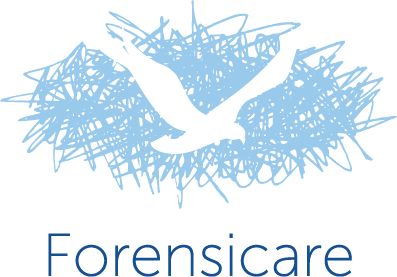Improves how we partner with our consumers and carers and promote their journey to improved wellbeing and more meaningful lives
(Use ctrl f to search for key words or authors.)
Kehoe, M., Wright, A. M., Lee, S. J., Rylatt, D., Fitzgibbon, B. M., Meyer, D., … & Henderson, K. (2023). Provision of a multidisciplinary post-suicidal, community-based aftercare program: A longitudinal study. Community Mental Health Journal, 59(4), 680-691. https://pubmed.ncbi.nlm.nih.gov/36374379/
Stone, A., Lloyd, C., Spivak, B., Papalia, N., & Serin, R. (2023). Trajectories of change in acute dynamic risk ratings and associated risk for recidivism in paroled New Zealanders: A joint latent class modelling approach. Journal of Quantitative Criminology. https://link.springer.com/article/10.1007/s10940-022-09566-5
Venner, S., Maharaj, N., Sivasubramaniam, D., & Shepherd, S. M. (2023). Aboriginal and Torres Strait Islander perspectives on forensic risk assessment. Psychiatry, Psychology and Law. https://www.tandfonline.com/doi/full/10.1080/13218719.2023.2192254
Soh, K. C., Tay, Y. H., & Darjee, R. (2023). Those Who Commit Violent Crimes can be Traumatised by Their Offences: A Systematic Review of Offence-Specific Post-Traumatic Stress Disorder. Journal of Aggression, Maltreatment & Trauma, 32(12), 1705-1725. https://www.tandfonline.com/doi/full/10.1080/10926771.2023.2186299
Day, A., Malvaso, C., Boyd, C., Hawkins, K., & Pilkington, R. (2023). The effectiveness of trauma-informed youth justice: a discussion and review. Frontiers in Psychology, 14, 1157695. https://www.ncbi.nlm.nih.gov/pmc/articles/PMC10514550/
Duff, M., Paki, W., Butler, R., McSweeney, C., & McKenna, B. (2023). The development of a forensic intellectual disability model of care: Synergy to achieve equity. International Journal of Forensic Mental Health, 22(4), 302-313. https://doi.org/10.1080/14999013.2023.2178555
Happell, B., Furness, T., Jacob, A., Stimson, A., Curtis, J., Watkins, A., … & Stanton, R. (2023). Nurse-Led Physical Health Interventions for People with Mental Illness: A Scoping Review of International Literature. Issues in Mental Health Nursing, 44(6), 458-473. https://pubmed.ncbi.nlm.nih.gov/37294933/
Jewell, M., Pillai, K., Cavney, J., Garrett, N., & McKenna, B. (2023). Examining the need for a high level of therapeutic security at a regional forensic mental health service in Aotearoa New Zealand. Psychiatry, Psychology and Law. https://www.tandfonline.com/doi/full/10.1080/13218719.2023.2192261
Kazantzis, N., Dattilio, F. M., Shinkfield, G., & Petrik, A. M. (2023). Clinician experiences of homework in couples and family therapy: A survey of perceived impact on the working alliance. Scandinavian Journal of Psychology, 64(1), 1-9. https://pubmed.ncbi.nlm.nih.gov/35876257/
Skipworth, J., Garrett, N., Pillai, K., Tapsell, R., & McKenna, B. (2023). Imprisonment following discharge from mental health units: A developing trend in New Zealand. Frontiers in Psychiatry, 14. https://www.frontiersin.org/journals/psychiatry/articles/10.3389/fpsyt.2023.1038803/full
Wharewera-Mika, J., Field, T., Wiki, N., Thomson, C., & McKenna, B. (2023). A description of a Māori, minimum secure, forensic mental health unit: A step toward equity. International Journal of Forensic Mental Health, 22(4), 267-275. https://www.tandfonline.com/doi/full/10.1080/14999013.2023.2167892
Anttila, M., Lantta, T., Hipp, K., & Välimäki, M. (2023). Recovery-oriented mental health principles in psychiatric hospitals: How service users, family members and staff perceive the realization of practices. Journal of Advanced Nursing, 79(7), 2732–2743. https://pubmed.ncbi.nlm.nih.gov/36408904/
Lazzari, S. Franz, B., Lloyd, C.D., Higley, C.A., & Serin, R.C. (2023). Peer mentors as prison volunteers: Building bridges between institutions and communities. International Journal of Offender Therapy and Comparative Criminology. https://journals.sagepub.com/doi/full/10.1177/0306624X231188416
Pfeifer, J. E. (2022). Technology and Indigenous prisoners: Guiding principles for the development of effective and responsive programs. Journal of Australian Indigenous Issues, 25(3-4), 71-89. https://search.informit.org/doi/10.3316/informit.882004659448812
Stevenson, E.K., Thomas, S.D.M & Daffern, M. (2022). Open versus closed group treatment of men with a history of sexual offenses. Sex Abuse, 35(6), 667-686. https://pubmed.ncbi.nlm.nih.gov/36380713/
Stone, A.G., Spivak, B.L., Lloyd, C.D., Papalia, N.L., & Serin, R.C. (2022). Clients’ current presentation yields best prediction of criminal recidivism: Jointly modelling repeated assessments of risk and recidivism outcomes in a community sample of paroled New Zealanders. Journal of Consulting and Clinical Psychology, 90(11), 872-883. https://pubmed.ncbi.nlm.nih.gov/36355656/
Papalia, N., Dunne, A., Maharaj, N. Fortunato, E., Luebbers, S., & Ogloff, J. R. P (2022). Determinants and outcomes of the therapeutic alliance in treating justice-involved youth: A systematic review of quantitative and qualitative research. Clinical Child and Family Psychology Review, 25, 658–680. https://doi.org/10.1007/s10567-022-00407-2
Ghaleiha, A., Barber, C., Tamatea, A. J., & Bird, A. (2022). Fathers’ help seeking behavior and attitudes during their transition to parenthood. Infant Mental Health Journal, 43(5),756-776. https://www.ncbi.nlm.nih.gov/pmc/articles/PMC9542128/
Classen, B., Tudor, K., Johnson, F. & McKenna, B (2021). Embedding lived experience expertise across the mental health tertiary education sector: An integrative review in the context of Aotearoa New Zealand. Journal of Psychiatric and Mental Health Nursing, 28(6), 1140-1152. DOI: 10.1111/jpm.12756
Lambert, C., Egan, R., & Thomas, S. D. (2021). What does effective allyship between social work and lived experience workers look like in the Australian forensic mental health context?. Qualitative Research in Psychology, 18(4), 459-472. doi: 10.1080/14780887.2020.1869357
Evans, A.; Quinn, C. & Holmes, D. (2020). Madness, sex and risk: A poststructural analysis. Nursing Inquiry, 27(4), e12359. DOI: 10.1111/nin.12359
Evans, A M., Quinn, C. McKenna, B. & Willis, K. (2020). Consumers living with psychosis: Perspectives on sexuality. International Journal of Mental Health Nursing, 30(2), 382-389. doi: 10.1111/inm.12795.
Harris, S., Farnworth, L., & Mynard, L. (2020). Experiences of disclosure for vocational occupations by forensic mental health consumers. Journal of Vocational Rehabilitation, 52, 291-301. doi:10.3233/JVR-201078
Wharewera-Mika, J., Cooper, E., Wiki, N., Prentice, K., Field, T., Cavney, J., Kaire, D., & McKenna, B. (2020). The appropriateness of DUNDRUM-3 and DUNDRUM-4 for Māori in forensic mental health services in New Zealand: participatory action research. BMC Psychiatry, 20(1), 61. doi:10.1186/s12888-020-2468-x
Boyce, C. A., Trounson, J. S., & Pfeifer, J. E. (2016). Examining the role of connection to culture and community in promoting Indigenous inmate engagement with education in prison. Advancing Corrections, 2, 79-90. ISSN: 2517-9233
Furness, T., Maguire, T., Brown, S., & McKenna, B. (2016). Perceptions of procedural justice and coercion during community-based mental health crisis: A comparison study among stand-alone police response and co-responding police and mental health clinician response. Policing. Advance online publication. doi:10.1093/police/paw047.
Lantta, T., Kontio, R., Daffern, M., Adams, C. E., & Välimäki, M. (2016). Using the Dynamic Appraisal of Situational Aggression with mental health inpatients: a feasibility study. Patient preference and adherence, 10, 691-701. doi:10.2147/PPA.S103840
O’Donahoo, J., & Simmonds, J. G. (2016). Forensic Patients and Forensic Mental Health in Victoria: Legal Context, Clinical Pathways, and Practice Challenges. Australian Social Work, 69(2), 169-180. doi:10.1080/0312407X.2015.1126750
Watson, R., Daffern, M., & Thomas, S. (2015). The Impact of Interpersonal Style and Interpersonal Complementarity on the Therapeutic Alliance Between Therapists and Offenders in Sex Offender Treatment. Sexual Abuse: A Journal of Research and Treatment. doi:10.1177/1079063215580969




